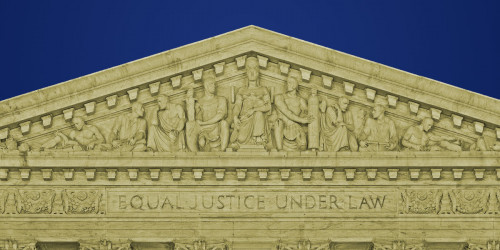Imagine going to court and potentially facing prison time over someone else’s comment in your blog. Thai webmaster Chiranuch Premchaiporn, also known by her online handle Jiew, has been facing that reality since her October 2010 arrest for violating the intermediary liability provisions of the 2007 Computer Crime Act and for "Lèse Majesté," or defamation of the Thai royal family. Jiew was not the author of the offending comments—she was the webmaster of the popular news site Prachatai that hosted them. In 2008, Prachatai published an interview with Chotisak Onsoong, a Thai man known for refusing to stand at attention during the Thai Royal Anthem—a dangerous political act in Thailand, but not technically a crime. The interview received huge attention, drawing over 200 comments from Thai citizens. On April 28, 2008, complaints were filed against Prachatai alleging that several comments on that interview were a defamation to the Monarchy. These complaints led to Jiew’s arrest months later.
A Thai court handed down Jiew’s sentence yesterday, signaling the end of a protected legal battle: a one-year suspended sentence, further reduced to eight months, and a 20,000 baht ($625) fine, which she paid immediately in cash. It’s not the acquittal Jiew had hoped for, but it’s far from the 32-year maximum sentence for the charges against her.
Even though it could have been worse, the verdict still spells bad news for freedom of expression in Thailand. Jiew herself is quick to point out that “I still think the verdict will have an impact on self-censorship."
"By convicting the manager of a news website of a crime, the Thai authorities are showing the extreme lengths they are willing to go to stifle free expression," Brad Adams, Asia director of Human Rights Watch, said in a prepared statement. "More and more web moderators and Internet service providers will censor discussions about the monarchy out of fear they too may be prosecuted for other people's comments."
Internet intermediaries were quick to condemn the ruling. Taj Meadows, Asia Pacific spokesman for Google, wrote via email:
"Telephone companies are not penalized for things people say on the phone and responsible website owners should not be punished for comments users post on their sites. The precedent set today is bad for Thai businesses, users and the innovative potential of Thailand's Internet economy."
Even without the threat of jail time, the Thai government has pressured global Internet intermediaries such as Google, Facebook, and Twitter to censor content. The Ministry of Information and Communications Technology (MICT), which regulates the Internet in Thailand, demanded last year that Facebook delete 10,000 pages for violating the lèse majesté law. Thai Facebook users who click on the “like” or “share” buttons linked to content that violates lèse majesté continue to be prosecuted. Wipas Raksakulthai, the first Thai Facebook user arrested in April 2010, was declared a prisoner of conscience by Amnesty International.
When Twitter announced in January that it would introduce country-by-country content blocking based on geolocation, MICT permanent secretary Jeerawan Boonperm said he would work with Twitter to make sure that tweets in Thailand complied with local law. Jeerawan noted that MICT already had "good cooperation" from Google and Facebook.
Intermediaries large and small continue to be threatened by the lèse majesté law. EFF is happy to see Chiranuch Premchaiporn receive a sentence that will probably not require her to serve jail time, but the threat that this law represents to freedom of expression in Thailand remains dire.










